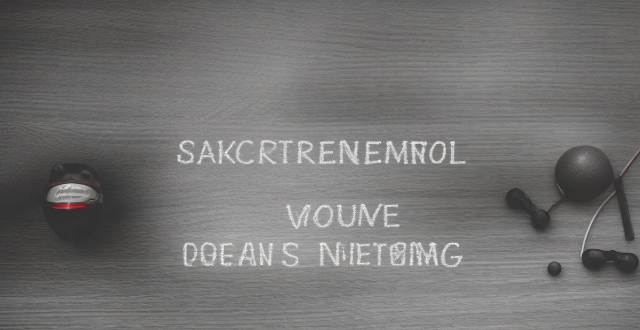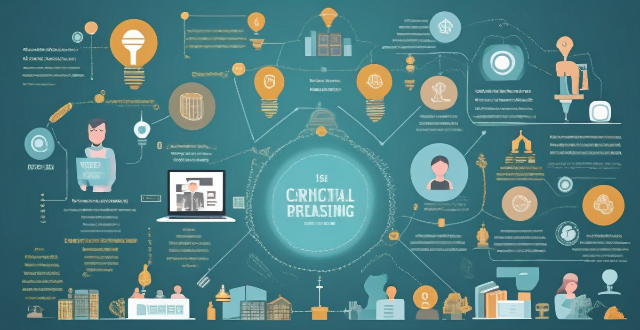Work Career

How does parenthood impact the career progression of women differently than men ?
In this article, we explore how parenthood affects women's careers differently than men's due to societal expectations and stereotypes, workplace policies and practices, and networking and mentorship opportunities. Women are often expected to be the primary caregivers for their children, leading to reduced work hours or time off work, which can result in a lack of opportunities for advancement or promotions as well as a loss of income and benefits. Workplace policies and practices can contribute to the different impact of parenthood on women's careers, with many workplaces having a "one-size-fits-all" approach to parental leave and flexible working arrangements that may not accommodate the needs of all employees. Networking and mentorship opportunities are essential for career progression but can be challenging for working parents, especially women who may miss out on these opportunities due to caring for their families. To address these issues, it is crucial for employers and society as a whole to recognize and support the unique challenges faced by working parents, particularly women, by implementing more flexible work arrangements, providing adequate parental leave policies, and promoting diversity and inclusion in the workplace.

How does work-life balance affect women's career growth and development ?
Work-life balance is crucial for women's career growth, reducing stress and increasing job satisfaction. Women face challenges achieving this balance due to societal expectations and lack of employer support. Strategies for achieving work-life balance include prioritizing self-care, seeking support from employers and coworkers, and building a strong support network.

What advice would you give to young women starting their careers on how to maintain a healthy work-life balance ?
Advice for Young Women on Maintaining a Healthy Work-Life Balance Starting a career can be an exciting and challenging time for young women. It's important to establish healthy habits early on to maintain a balance between work and personal life. Here are some tips to help you achieve that balance: - Prioritize Your Time - Take Care of Yourself - Develop Healthy Habits - Embrace Self-Care Remember, maintaining a healthy work-life balance is essential for long-term success and happiness. By implementing these strategies, you can create a fulfilling career while still having time for the things that matter most in your life.

How does lifelong learning impact career development ?
Lifelong learning is a continuous process of acquiring new knowledge and skills that can significantly impact career development. It enhances skills, adaptability, creativity, personal growth, networking opportunities, and career longevity. By engaging in lifelong learning, individuals can stay relevant in their professions, adapt to changing job requirements, and increase their chances of career success.

What role does networking play in career planning and development ?
Networking is a crucial component in career planning and development. It involves building and maintaining relationships with people who can offer support, advice, and opportunities for professional growth. The importance of networking cannot be overstated, as it plays a significant role in various stages of one's career journey. One of the primary benefits of networking is that it helps individuals build professional relationships. These relationships can be with peers, mentors, or industry experts who can provide valuable insights and guidance. By establishing connections with these professionals, individuals can gain access to information about job openings, industry trends, and best practices. Additionally, having a strong network can help individuals navigate through challenging situations and make better decisions regarding their career path. Networking also provides opportunities for mentorship. Mentors are experienced professionals who can offer guidance, support, and advice to help individuals achieve their career goals. They can share their knowledge and expertise, provide feedback on work performance, and offer advice on how to advance in one's career. Mentors can also introduce individuals to new contacts within their network, expanding their reach even further. Another advantage of networking is that it provides access to information and resources that may not be readily available elsewhere. For example, attending industry events or joining professional organizations can expose individuals to the latest trends, technologies, and innovations in their field. This information can help individuals stay ahead of the curve and position themselves as thought leaders within their industry. Furthermore, networking can lead to collaborations and partnerships that can open up new opportunities for growth and development. Networking is essential for career advancement opportunities. Many jobs are filled through referrals from existing employees or other professionals within the company. Having a strong network increases the chances of being referred for job openings or recommended for promotions. Additionally, networking can help individuals identify potential employers or clients who share similar values and interests, making it easier to find fulfilling work that aligns with their passions and goals. Finally, networking plays a crucial role in personal branding. Building a strong personal brand requires consistent communication of one's skills, experiences, and accomplishments. Networking provides an opportunity to showcase these qualities to a broader audience, increasing visibility and credibility within the industry. By engaging with others in a professional manner and sharing valuable insights and experiences, individuals can establish themselves as thought leaders and experts in their field. In conclusion, networking is an integral part of career planning and development. It helps individuals build professional relationships, gain access to information and resources, find career advancement opportunities, and establish a strong personal brand. To maximize the benefits of networking, individuals should actively seek out opportunities to connect with others in their industry, attend events and conferences, join professional organizations, and engage with others on social media platforms. By investing time and effort into building a robust network, individuals can accelerate their career growth and achieve their professional goals.

What steps should I take to achieve my career goals ?
Achieving Your Career Goals: A Step-by-Step Guide outlines a comprehensive strategy for reaching professional objectives. It starts with defining goals by identifying interests, skills, values, and setting SMART objectives. Researching industries, networking, and understanding potential employers are emphasized. Acquiring relevant skills through education and developing soft skills is crucial. Gaining experience through internships, volunteering, and seeking mentorship is advised. Building a professional brand involves creating strong resumes, establishing an online presence, and active networking. Strategic job applications require customization and thorough interview preparation. Continuous assessment and adjustment of the career plan, staying informed, and being open to new opportunities are essential for success. Patience, perseverance, and adaptability are key traits for achieving career goals.

How do academic competitions impact a student's future career prospects ?
Academic competitions play a crucial role in shaping students' future career prospects by developing essential skills, providing networking opportunities, and offering recognition and awards. These competitions foster critical thinking, time management, collaboration, and teamwork, which are highly valued by employers across all industries. Participating in academic competitions also allows students to connect with industry professionals and build professional relationships with their peers and competitors. Winning or performing well in these competitions can boost a student's resume and attract scholarships and grants for further education. Overall, academic competitions provide valuable experiences that can help students stand out to potential employers and lay the foundation for a successful career in their chosen field.

What should be included in a sports career plan ?
A comprehensive sports career plan should include personal information, career objectives, skill development, education & training, competition history, sponsorship & funding, off-field activities, health & wellness, post-retirement planning, and a conclusion. It serves as a roadmap to guide athletes through their journey in sports, ensuring they are well-prepared for every stage of their career.

How can I transition into a new career field or industry ?
Transitioning into a new career field or industry requires careful planning, research, and a willingness to learn new skills. To make the transition smoother, assess your skills and interests, research potential careers, gain relevant experience through courses, certifications, volunteering, or part-time jobs, update your resume and cover letter, and apply for jobs while preparing for interviews. By following these steps, you'll be well-prepared to make a successful transition into an exciting new chapter of your professional life.
![Did [insert celebrity name] drop out of school to pursue their acting/music career ?](/images/3nde/389e75a9-686d-4943-a6f7-d9b486c73fbb.png)
Did [insert celebrity name] drop out of school to pursue their acting/music career ?
The article discusses whether [insert celebrity name] dropped out of school to pursue their acting/music career. It provides an overview of their early life and education, reasons for dropping out, and the consequences of this decision. The article concludes that while there were both positive and negative consequences, it ultimately depends on personal preference and priorities when deciding between education and pursuing one's passion.

How important is mental health in managing a sports career ?
This article discusses the importance of mental health in managing a sports career. It explains how mental health affects an athlete's performance, recovery, team dynamics, off-field success, and personal growth. The article emphasizes that athletes with good mental health are more likely to set goals, work hard towards achieving them, and push through challenges. It also highlights the role of mental health in developing life skills that extend beyond an athlete's sports career. Overall, the article underscores the significance of prioritizing mental well-being for athletes to maximize their potential both as individuals and members of their teams.

How do I identify my strengths and weaknesses for career planning ?
This guide emphasizes the importance of understanding one's strengths and weaknesses for effective career planning. It outlines methods such as self-assessment, formal assessments, and leveraging feedback from others to identify these traits. The guide then suggests ways to use this information in choosing a career path, developing strengths, and addressing weaknesses. It encourages seeking opportunities for growth and not being afraid to ask for help.

How do celebrities balance their personal lives and friendships while maintaining a successful career in the spotlight ?
Celebrities face challenges in balancing their personal lives and friendships with their careers. They use strategies such as setting priorities, open communication, setting boundaries, spending quality time, and building a support system to manage this balance. By implementing these strategies, celebrities can maintain successful careers while also leading fulfilling personal lives.

What are the long-term effects of breaches in academic integrity on one's career ?
The long-term effects of breaches in academic integrity can be severe and far-reaching, including damaged reputation, limited career opportunities, and potential legal consequences. It is essential for students, researchers, and educators to uphold the principles of academic integrity to ensure the success of their careers and the integrity of their respective fields.

How does scientific literacy among women influence their career choices in science and technology fields ?
Scientific literacy significantly influences women's career choices in science and technology fields by enhancing opportunities, overcoming barriers, increasing diversity, and improving representation. It enables women to access complex scientific information, develop problem-solving skills, broaden their perspectives, break stereotypes, promote equality, address biases, expand career horizons, encourage mentorship, foster collaboration, challenge underrepresentation, influence policy, and change public perceptions about the suitability of these fields for females.

What resources are available for career planning and development ?
This text provides an overview of various resources available to support career planning and development. It covers online courses, networking opportunities, mentorship programs, job boards, personal development books and podcasts, coaching services, government and non-profit resources, university career services, company ERGs, and industry publications. These resources aim to enhance skills, expand networks, and keep individuals informed about opportunities that align with their career goals.

What steps should I take to transition out of my sports career ?
Leaving a sports career can be challenging, but careful planning and self-reflection can help. Identify your interests and passions, build your network, gain new skills and education, create a plan, and seek support when needed.

How can I stay motivated while working towards my career goals ?
The text provides a detailed guide on how to stay motivated while working towards your career goals. It emphasizes the importance of setting clear and achievable goals, breaking them down into smaller tasks, staying organized, finding inspiration, taking care of yourself, embracing challenges, seeking support, and celebrating your successes. The tips provided in the text are practical and actionable, making it easier for individuals to maintain focus and drive throughout their career journey. Overall, the text offers valuable insights and advice on how to stay motivated and achieve success in one's career.

What role does nutrition play in sports career management ?
Nutrition is a critical component in managing a sports career, as it fuels performance, supports health, aids in weight management, and contributes to mental well-being. Athletes must focus on hydration, balancing macronutrients, ensuring micronutrient intake, timing meals appropriately, and judicious use of supplements. A personalized nutrition plan can optimize training, competition outcomes, and longevity in a sports career.

What is the impact of sports on the career aspirations of young people ?
Text: The Impact of Sports on the Career Aspirations of Young People Introduction - Sports are integral to society and significantly impact young people's career aspirations. - This article explores both positive and negative aspects of sports' influence on career goals. Positive Impact 1. Development of Key Skills - Teamwork, leadership, perseverance, and other skills developed through sports are beneficial in any career. 2. Increased Confidence and Self-Esteem - Success in sports can boost confidence and self-esteem, making young people more likely to pursue ambitious career goals. 3. Exposure to Diverse Opportunities - Sports open doors to various career paths and scholarships for higher education. Negative Impact 1. Pressure and Burnout - Intense focus on sports achievements can lead to excessive pressure and burnout. 2. Limited Time for Other Activities - Dedication to sports training may leave little time for exploring other interests or developing skills outside of sports. 3. Injury Risks - The risk of injury is always present in sports and can hinder a young person's ability to pursue a sports-related career or affect overall employability. Conclusion - Sports have a profound impact on the career aspirations of young people. - While they offer numerous benefits, it is essential to be aware of potential drawbacks. - Balancing sports involvement with other activities and interests allows young individuals to make informed decisions about their future career paths while enjoying the benefits of sports.

What are the benefits of hiring a sports agent for career management ?
Hiring a sports agent can bring numerous benefits to an athlete's career management, including negotiating contracts and deals, marketing and branding assistance, legal representation, and career planning and development. By working with an experienced sports agent, athletes can focus on their performance while leaving the business side of their careers in capable hands.

How does studying abroad impact a student's future career prospects ?
Studying abroad can significantly impact a student's future career prospects by enhancing cultural awareness, broadening educational horizons, providing professional advancement opportunities, and contributing to personal development. Students gain a global mindset, language skills, adaptability, and problem-solving abilities. They also benefit from academic rigor, research opportunities, independence, and confidence. Professionally, students expand their global network, gain employment advantages, and higher earning potential. Personally, they develop life skills such as time management and financial planning, along with cross-cultural competence and a desire for lifelong learning. Overall, studying abroad equips students with transferable skills that are highly valued by employers across various industries, positively influencing their career prospects.

How can teacher training be tailored to support early career teachers versus more experienced educators ?
Teacher training is crucial for educators at all stages of their careers, but the needs of early career teachers differ from those of experienced educators. Early career teachers benefit from training focused on classroom management, curriculum development, instructional strategies, professional development, and mentorship programs. Experienced educators may seek training in advanced instructional methods, leadership development, technology integration, professional growth opportunities, and mentorship opportunities. Tailoring teacher training to meet the unique needs of both groups can be achieved through a variety of programs such as orientation workshops, coaching sessions, collaborative learning groups, online courses, advanced workshops, research collaborations, professional development retreats, and online learning communities. By providing tailored support, teacher training empowers educators to achieve excellence in teaching and positively impact student learning outcomes.

What role will education play in preparing individuals for future careers ?
Education is crucial for preparing individuals for future careers by developing technical and soft skills, fostering critical thinking, promoting lifelong learning, providing career guidance, offering networking opportunities, allowing for practical experience, broadening global perspectives, and contributing to personal development.

How can companies support female employees in achieving a healthy work-life balance ?
Companies can support female employees in achieving a healthy work-life balance by implementing flexible working arrangements, family-friendly policies, health and wellness programs, and professional development opportunities. These strategies include offering remote work options, flexible hours, paid maternity leave, parental leave, childcare support, mental health support, physical fitness programs, comprehensive health insurance benefits, training and education opportunities, mentorship programs, and networking events. By doing so, companies can create a supportive work environment that promotes job satisfaction, productivity, and retention among female employees.

How do work-life balance policies affect female employees differently than male employees ?
Work-life balance policies, such as flexible scheduling, remote work opportunities, and paid leave, can have different impacts on female and male employees due to societal expectations, family roles, and workplace norms. Women may benefit more from these policies as they are more likely to take on caregiving responsibilities and may face biases in the workplace. Men may also benefit from these policies but may not utilize them as frequently as women do. Employers should strive to create a supportive workplace culture that recognizes and addresses the diverse needs of all employees, regardless of gender.

How do celebrities balance their public image with their charity work ?
Celebrities navigating the challenge of maintaining a positive public image while engaging in charity work can adopt several strategies: 1. **Authenticity**: Genuine care for supported causes resonates with the public and fans. 2. **Transparency**: Open communication about charitable activities builds trust and avoids overpromising. 3. **Alignment with Personal Brand**: Selecting causes that align with their personal brand maintains consistency in their public image. 4. **Engage with Fans**: Interacting with fans about charity work fosters community and encourages involvement. 5. **Consistency**: Regular involvement shows long-term commitment rather than fleeting interest. 6. **Avoid Controversy**: Stay away from polarizing issues to prevent backlash on public image and charity. 7. **Collaborate with Other Celebrities**: Joint efforts amplify reach and show unity among peers. 8. **Measure Impact**: Showcasing tangible results demonstrates the effectiveness of their charitable efforts. 9. **Seek Professional Advice**: Consulting experts helps navigate complexities in balancing public image and charity work. By following these strategies, celebrities can balance public image with charity work, ensuring benefits for both their supported causes and their reputation.

What are the key elements of successful sports career management ?
Managing a successful sports career involves various elements that work together to ensure the athlete's success. Key elements include goal setting, time management, skill development, mental preparation, nutrition and hydration, injury prevention and recovery, networking and relationship building, and financial management. Athletes must set both short-term and long-term goals, manage their time effectively, develop physical and technical skills, prepare mentally for competitions, maintain proper nutrition and hydration, prevent and recover from injuries, build strong relationships with coaches and teammates, and manage their finances wisely.

Can you suggest some effective strategies for building a successful sports management career ?
Strategies for building a successful sports management career include obtaining education and training, gaining experience through internships and volunteer work, networking and building relationships, and strategic planning and goal setting. Pursuing a degree in sports management or a related field, attending seminars and workshops, obtaining certifications, seeking out internships or entry-level positions, volunteering for local sports events, starting small, attending industry events, joining professional organizations, setting clear goals, developing a personal brand, and staying flexible and open-minded are all effective strategies that can help achieve success in the field of sports management.

What are the benefits and drawbacks of pursuing a career in sports psychology ?
Pursuing a career in sports psychology can have both advantages and disadvantages. Sports psychologists promote mental health awareness, reduce stigma, and enhance athletic performance through resilience and coping strategies. They also enjoy continuous learning opportunities and work with diverse clientele. However, the job market is competitive, and opportunities may be limited outside of professional sports settings. Additionally, sports psychologists often face high-pressure environments and emotional tolls from their clients' struggles. Skepticism and resistance towards their role may also exist due to lack of understanding or macho attitudes in some sports cultures.